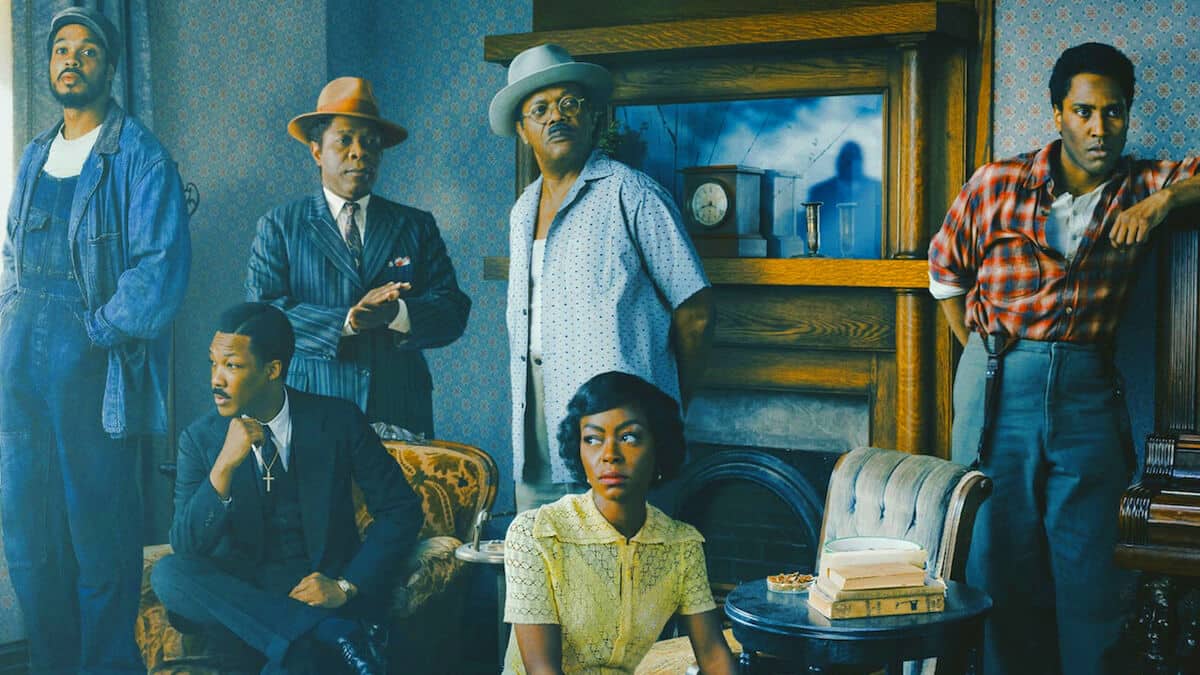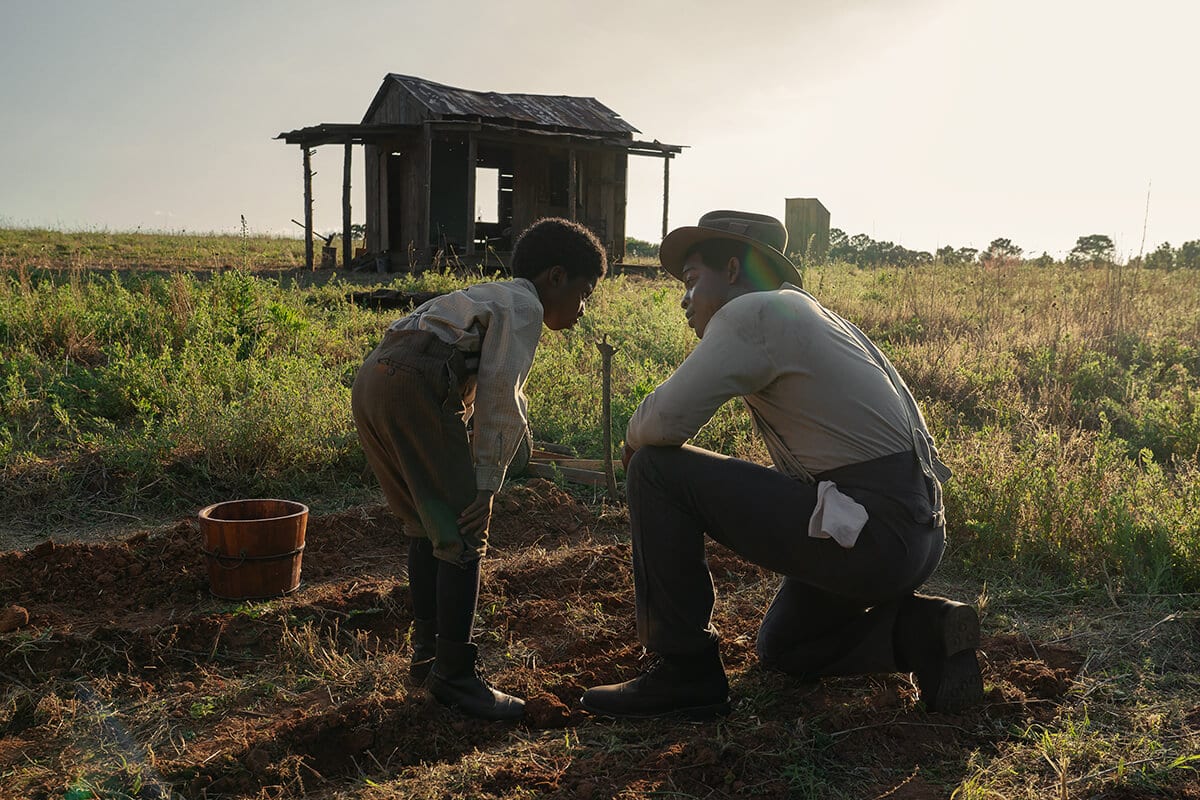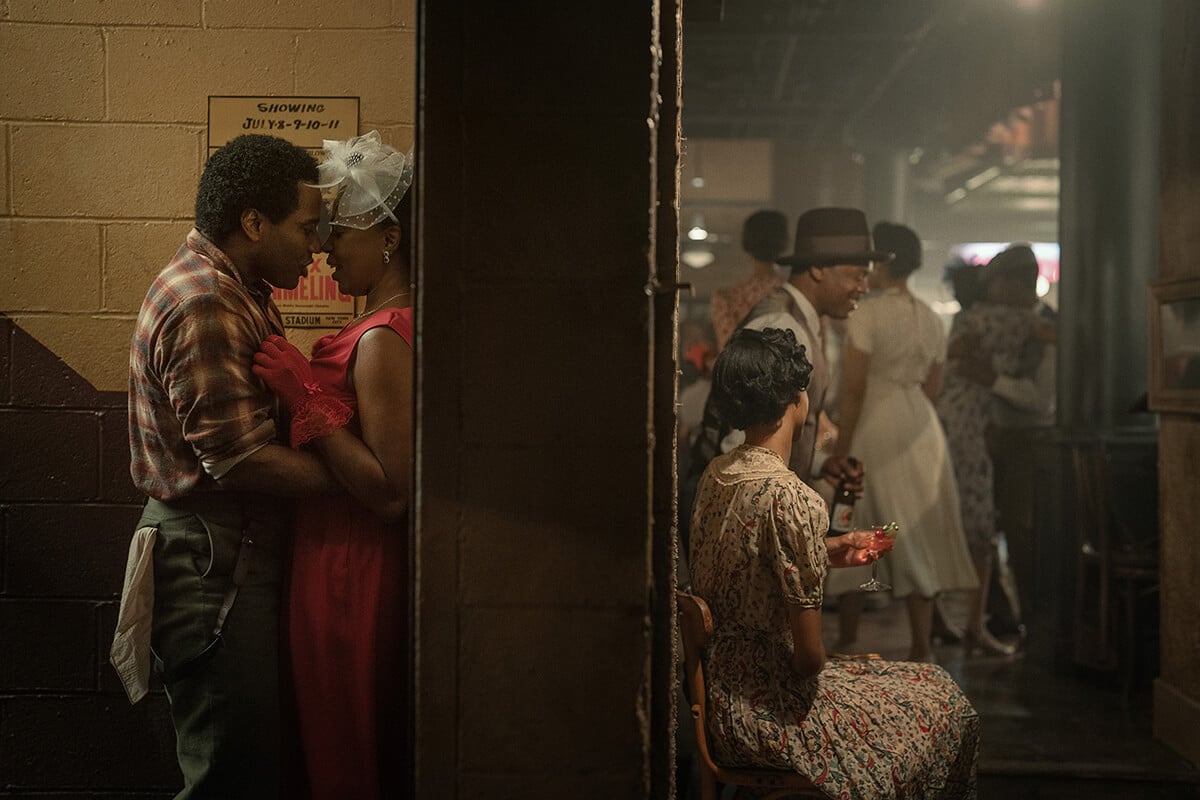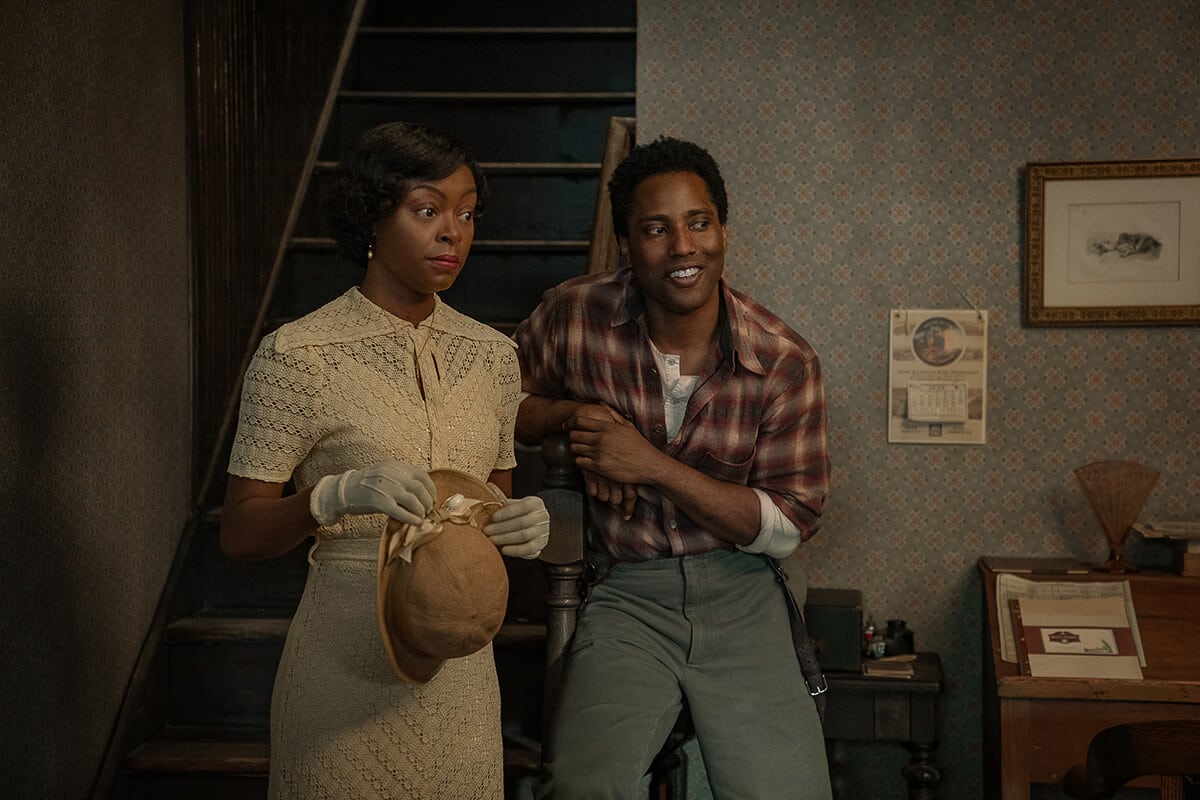
Picture: Netflix
Premiering at the Telluride & Toronto International Film Festivals in hopes of a long awards run, The Piano Lesson is the latest film adaptation of the work of playwright August Wilson, who won the Pulitzer Prize for his original play version back in 1990. Wilson’s work is no stranger to the cinematic treatment as his plays Fences & Ma Rainey’s Black Bottom have been made into Oscar-winning films over the last decade.
Set in 1930s Pittsburgh in the wake of the Great Depression, the story centers around the Charles family, most notably two siblings, Berniece (Till’s Danielle Deadwyler) & Boy Willie (BlacKkKlansman’s John David Washington), who are currently at odds over the possibility of selling their family heirloom: a beautiful piano with well-preserved carvings of their past family members all over its facade – a piano their father died for when he took it from the home of their slave owner Mr. Sutter a generation ago.
Blowing into town like a hurricane, Boy Willie informs the family of a business proposition on the table for him back home in Mississippi: a chance to buy the land his family ancestors toiled as slaves owned by the recently deceased Mr. Sutter. With only a short time to get the money together, he’s desperate to sell the family piano to get the last of the money he needs. However, he must convince his sister to go along with the sale; a thing she has emphatically refused in the recent past due to her strong connection with her mother and the family history soaked into the pores of the piano itself.

The Piano Lesson. (L-R) Isaiah Gunn as Young Boy Willie and Stephan James as Boy Charles in The Piano Lesson. Cr. David Lee/Netflix © 2024
Surrounded by a host of family and friends, all with an opinion or personal story about the piano, the siblings must face their issues head-on in a notable debate over the struggle to preserve—but not be haunted by—the past while not doing so at the expense of the present and future. The story examines what legacy means, especially in a black family just barely getting on in a post-slavery/post-depression world, and how best to use it to build a new legacy for future generations.
Much like Fences & Ma Rainey’s Black Bottom, The Piano Lesson is a heavy-dialogue, heavy-monologue piece that largely features people talking in the same few rooms, which always presents a challenge for its filmmakers to make the big screen version worthy of its adaptation & not feel too stagy or basic as many chamber piece plays can be. However, writer/director Malcolm Washington builds upon the examples set by the films produced by his iconic father Denzel by making something so small feel much more expansive.
Utilizing musical sequences and flashback storytelling, director Malcolm brings the history of the Charles family to life, from the tragic past filled with hardship, exploitation, & murder to what survived to the present like the goosebump-inducing, foot-stomping prison work song ‘Berta ‘Berta sung by the Charles men in a show-stopping rendition or impassioned speeches about moving forward filmed with the constantly revolving camera weaved by cinematographer Michael Gioulakis (Us, Split, It Follows).
The film moves as John David Washington’s Boy Willie moves – frantic & freewheeling when he implores his vision for the family’s new future or patient & still when a Berniece or Doaker puts him back in his place with a longer perspective. The cinematography, the score from Oscar winner Alexandre Desplat (Little Women, The Shape of Water), & the powerhouse performances from Deadwyler & Washington give the film a livewire energy & always present tension that many play adaptations cannot produce.
Also like the previous Wilson adaptations, the chemistry between much of the cast is quite impressive and much needed in a story like this. Of course, Washington was working with a stacked deck as he plucked his brother John David, screen legend Samuel L. Jackson (Uncle Doaker), DC Universe star Ray Fisher (Lymon), & Ma Rainey’s Black Bottom standout Michael Potts (Wining Boy) right off their Broadway production of the play for several months in late 2022.

The Piano Lesson. John David Washington as Boy Willie in The Piano Lesson. Cr. David Lee/Netflix © 2024
But the performance that will garner the most attention & praise come award season will be that of Deadwyler. In Berniece, she takes on a grieving widow, a grieving daughter, & a single mother trying to do the best she can while feeling stuck in her own station. While the first half of the movie may see Berniece playing the same tune as an angry, defiant sister hellbent on seeing Boy Willie leave her house and leaving the family piano alone, the second half is hers with 3 massive scenes that redefine what the piano means to her family, what it means to be a woman without a man, & the electrifying climax that lets her reclaim her family’s history and reclaim her life from the demons (metaphorical or supernatural) that have held her back for years. Those scenes might propel her into the Oscar spotlight this year in Best Supporting Actress.
With a tribute to their excellent ensemble and a nomination for Deadwyler’s supporting performance already on the books from the Gotham Awards, The Piano Lesson is already off to a strong start this awards season and for good reason. Malcolm Washington’s adaptation feels more vibrant & cinematic than most plays brought to the screen, even with the typical chamber piece level limitations. With the luxury of deeply committed talent fresh off a Broadway run and a crew full of heavy-hitting craftspeople filled with awards & acknowledgments, The Piano Lesson may be the finest August Wilson adaptation for the screen to date.

The Piano Lesson. (L-R) Danielle Deadwyler as Berniece and John David Washington as Boy Willie in The Piano Lesson. Cr. David Lee/Netflix © 2024
Watch The Piano Lesson If You Liked
- Fences
- Ma Rainey’s Black Bottom
- Mudbound
MVP of The Piano Lesson
Danielle Deadwyler as Berniece
Following up her awards season run two years ago for her breakout lead role in Till, Danielle Deadwyler seems poised to make another well-decorated run once again for her portrayal of Berniece Charles in The Piano Lesson.
In her performance, she brings the audience into the deeply felt sorrow that her family has endured in the generations since the carvings of the piano were first created. From the emotional shrapnel after the loss of her father to her own husband’s murder, Berniece has known too much pain while having to bury or avoid much of it in order to be there every day for her daughter. While the piano represents a new life for her brother, it represents an irreplaceable bond with her mother and the spirits of her ancestors. Deadwyler gives us an even deeper range than her award-winning performance in Till filled with anger, resentment, longing, & resilience. With her recognition from the Gotham Awards already in the bag, Deadwyler may take this one all the way to the Oscars stage.
An impressive first feature for Malcolm Washington with a powerhouse performance from Deadwyler & a vibrant, tone-setting execution from John David Washington at its center.




